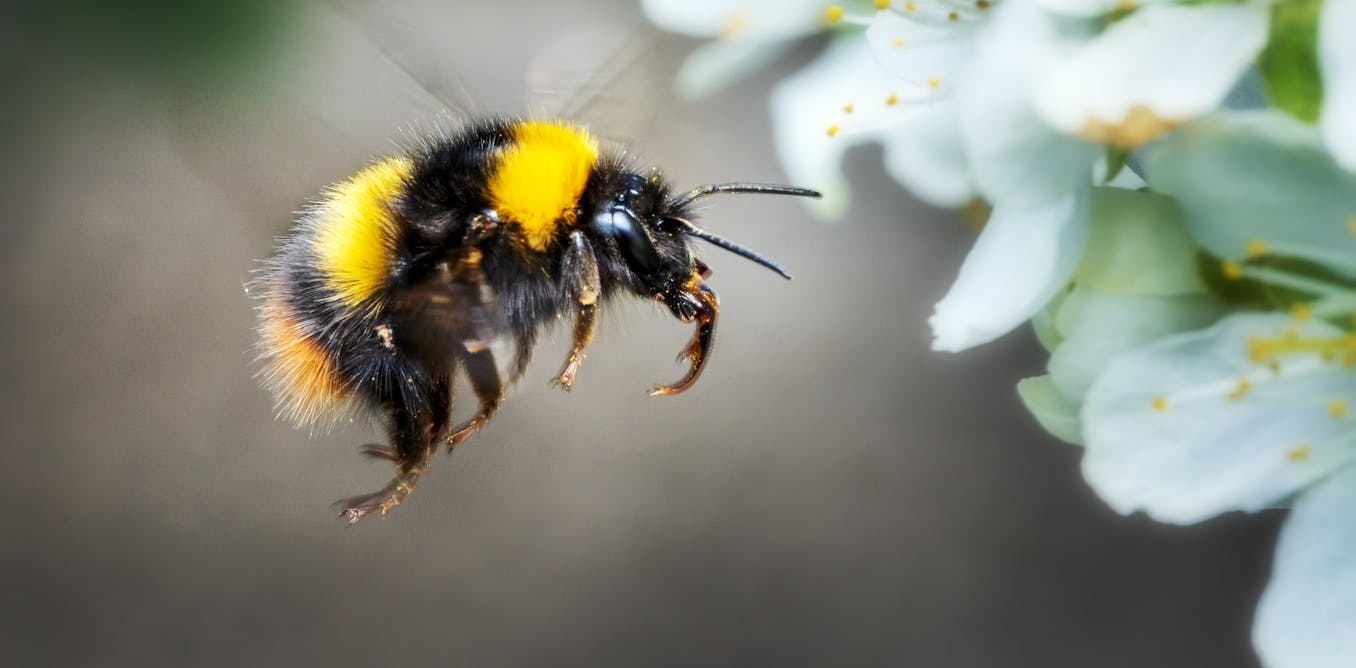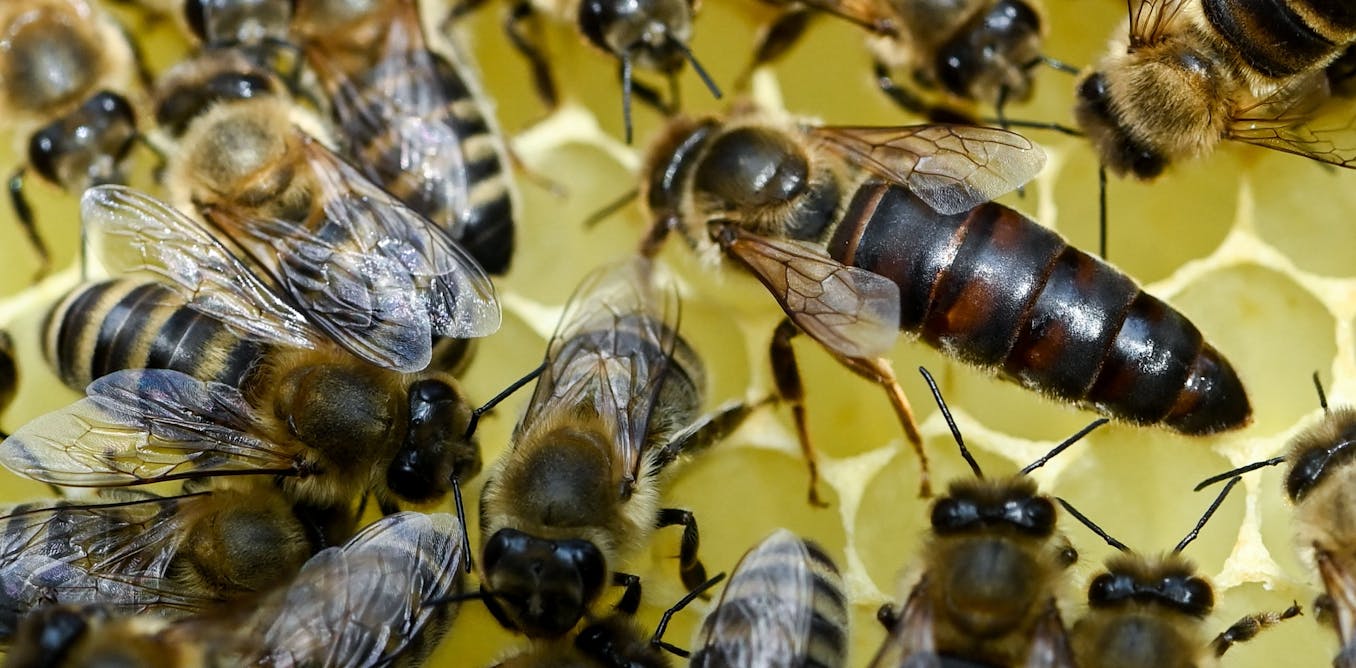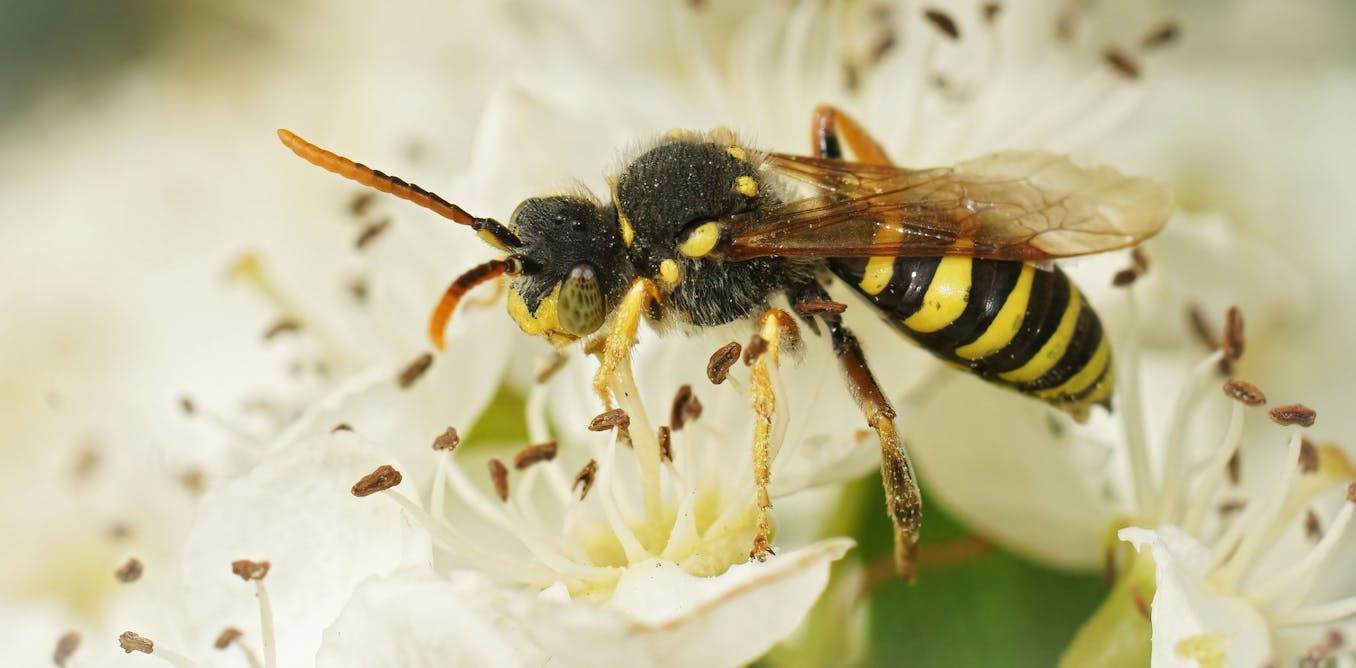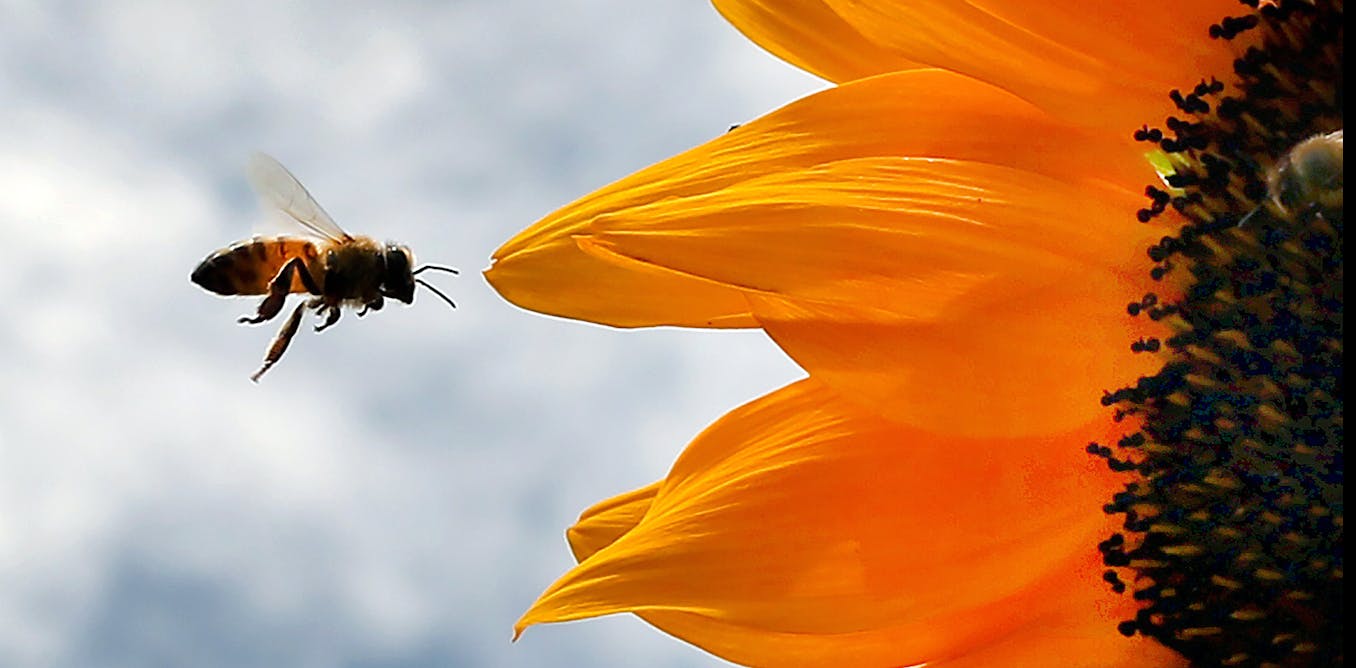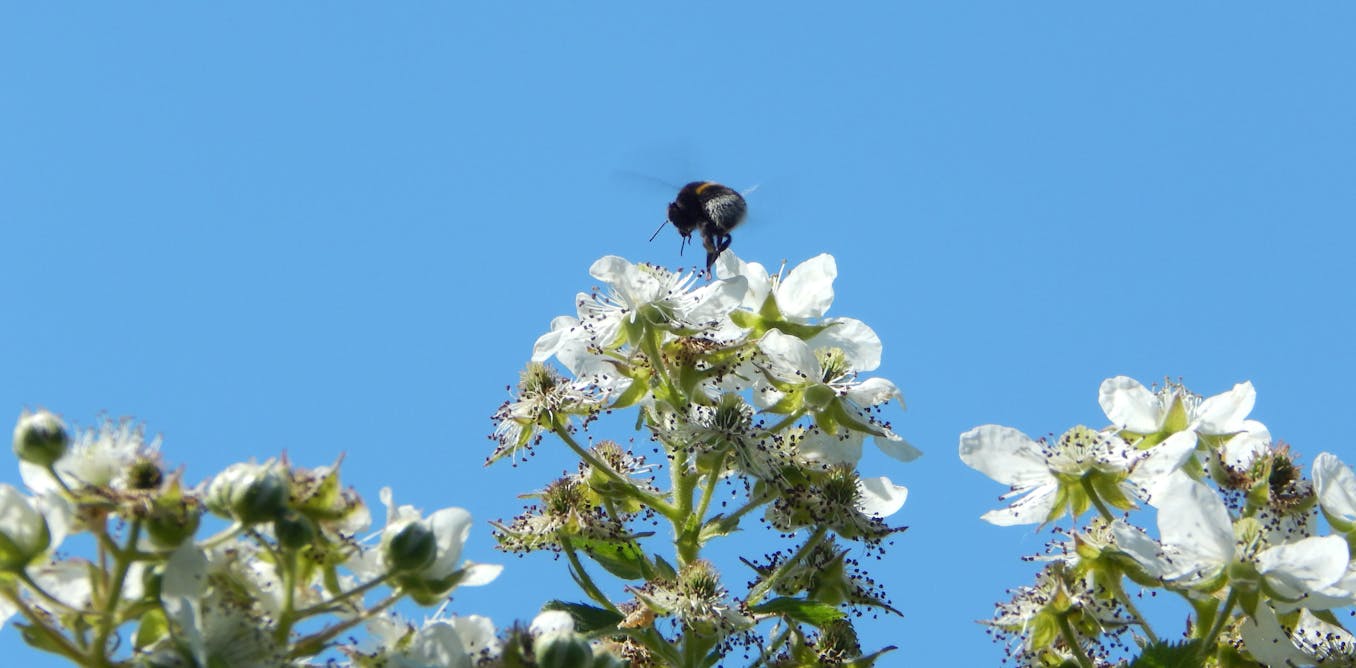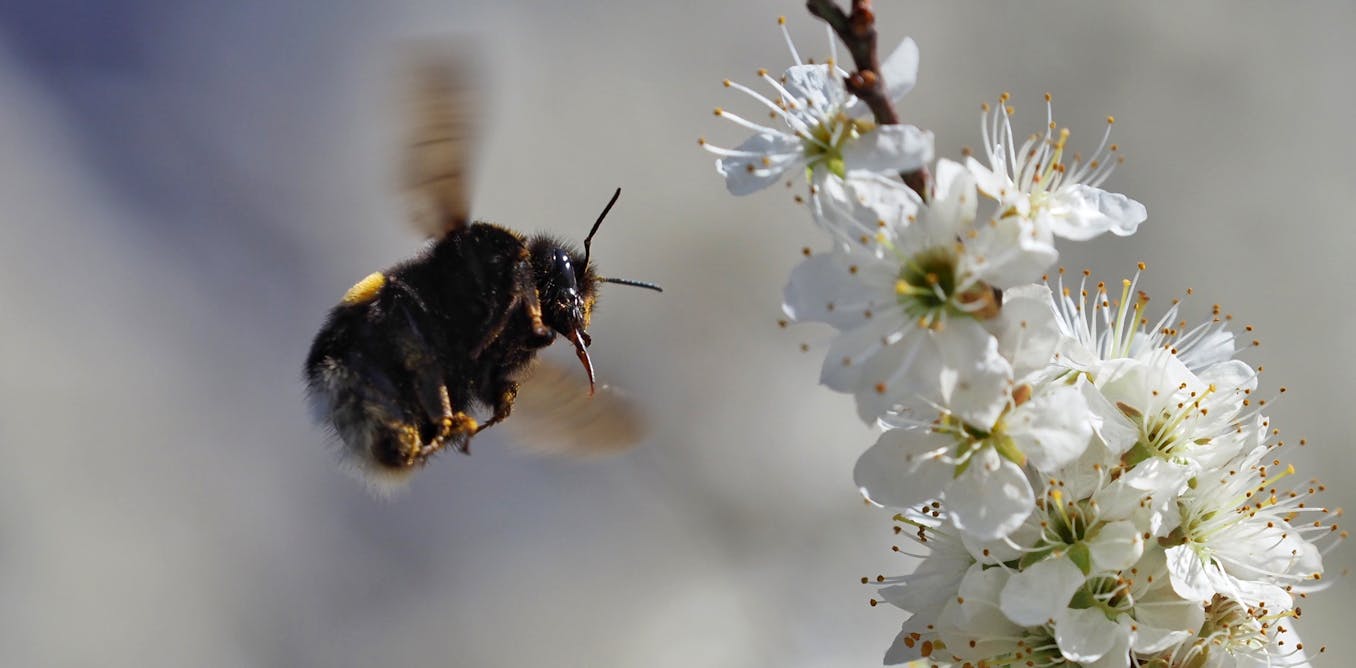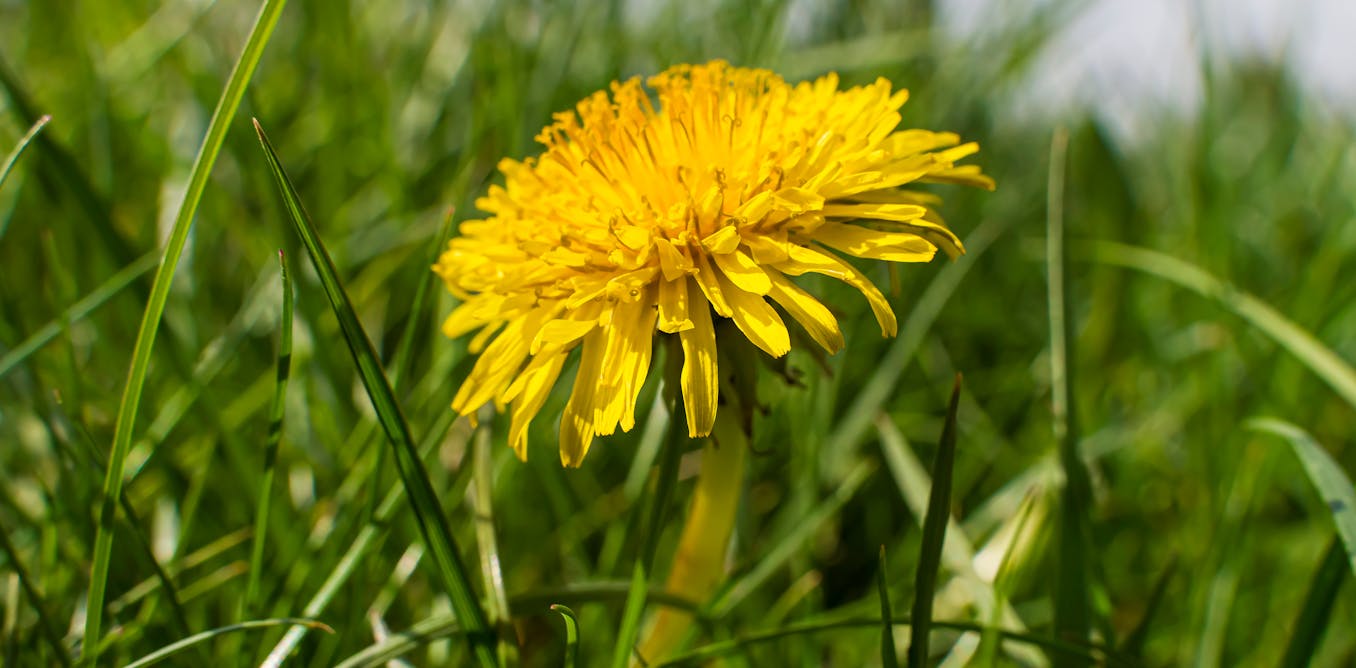Why do bees have queens? 2 biologists explain this insect’s social structure – and why some bees don’t have a queen at all
A queen’s main job in the hive is to lay eggs and pass genes on to offspring. But many bee species do just fine without queens or big colonies.
March 4, 2024 • ~7 min
Wild solitary bees offer a vital pollination service – but their nutritional needs aren’t understood
The nutritional needs of bees are complex and monoculture crops aren’t providing a diverse diet. Introducing more diverse wildflower meadows and green spaces could benefit wild pollinators.
March 1, 2024 • ~6 min
'Inert' ingredients in pesticides may be more toxic to bees than scientists thought
Inert ingredients are added for purposes other than killing pests and are not required under federal law to be tested for safety or identified on pesticide labels.
Dec. 5, 2023 • ~10 min
Why moths might be more efficient pollinators than bees and butterflies
But pesticides and climate change are threatening moths’ future.
Aug. 16, 2023 • ~7 min
Ivy, dandelions and other common wildflowers are often seen as weeds – but they're a crucial resource for pollinating insects
Native common wildflowers provide large amounts of pollen and nectar for insects – but many are undervalued by the public.
Aug. 7, 2023 • ~7 min
Bees can learn, remember, think and make decisions – here's a look at how they navigate the world
Scientists are learning amazing things about bees’ sensory perception and mental capabilities.
May 17, 2023 • ~9 min
Unlocking secrets of the honeybee dance language – bees learn and culturally transmit their communication skills
Honeybees possess one of the most complex examples of nonhuman communication. New research suggests that it is learned and culturally passed down from older to younger bees.
March 9, 2023 • ~8 min
/
6

